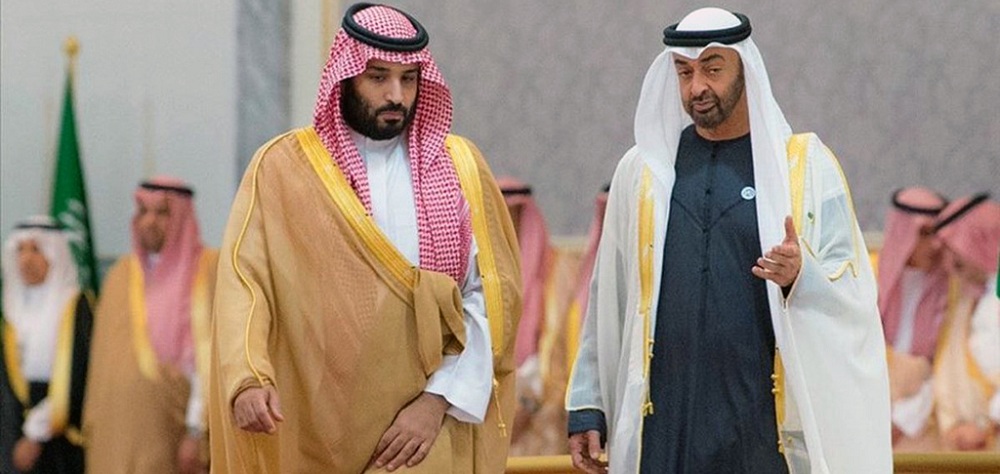Alwaght- As the clashes intensify in Ukraine, the US-led West has unveiled new sanctions on Russia, adding they would go even further with more restrictions. The anti-Russian sanctions are described as unprecedented and massive. Alwaght arranged an interview with Sayyed Reza Sadralhusseini, asking him for comments on Ukraine war developments and the sanctions against Russia and their implications.
Alwaght: Over the past few days, the Western countries said sanctions would be the most efficient tool against Moscow for its invasion of Ukraine. Have these sanctions managed to realize what the West sought?
Sadralhusseini: To date, the West has only been able to use sanctions as its most important tool to check any opposition in all areas, especially in the strategic areas, and the sanctions will certainly have an impact on the targeted countries. But having in mind that Russia is a vast country with massive global relations, the cooperation it established with China in recent years, and also use of experiences of such countries as Iran in circumventing the sanctions, it can be said that it has the power to weather the effects of sanctions.
At the same time, the Europeans will certainly suffer from their own sanctions. Forty percent of the EU's fuel and energy is currently imported from Russia, and given that energy consumption in Europe is on the rise, Europe's demand for Russian gas will certainly increase over the next few years. Though the Western leaders instrumentalize economic sanctions against Moscow, the ordinary people would be the main sufferers. The damage to people under the sanctions contradicts the pro-human rights slogans of the West. The EU has so far evaded responses to questions about economic damages to people.
Alwaght: Does the West seek to influence the next presidential elections in Russia to prevent Putin reelection?
Sadralhusseini: According to the changes in the Russian constitution, the change of Putin is out of question, and only the change of the method of election Mr. Putin has used is what the West wants. However, although the Russian people will face challenges under the sanctions, Russia, on the strength of its partner countries, will be able to overcome this crisis and perhaps overcome this challenge sooner than other countries. There can be a retreat from Europe and the West in the coming months because the European countries, especially Germany which imports 70 percent of its energy from Russia, desperately need Russian energy. It is certainly impossible to get energy from other countries in the short run, and in the midterm, too, it would be extremely difficult for Europe and particularly Germany, to do so.
Alwaght: After Russia vetoed the UNSC resolution against it, the West tried to build an international consensus against Moscow but some Washington allies like the UAE rejected to join in. Why did such countries as the UAE and even other Arab countries not join the US and Europe as it was expected?
Sadralhusseini: The answer to this question has to do with the reality of the decline of the US power and hegemony, and this issue is more obvious to the world today, especially to the allies of Washington including some Arab countries in the Persian Gulf region. Although the Arab countries are moving away from the US too late and realized the reality about the American hegemonic decline too late, they have now come to the conclusion that there has been a change in the international order and weight and that is what requires them to look at emerging eastern powers like Russia, China, and Iran for a balance. Playing out of the Western control seems to signal that the Arab states are closely watching the world developments now and have predictions for the near future.
Alwaght: The oil prices are rallying for days and the Americans have not managed to control the energy markets yet and even there are reports about American talks with Venezuela to pump more oil. Can such countries in West Asia as Saudi Arabia fill the void left by distancing Russian oil from the markets?
Sadralhusseini: There are limits on capacity of oil and gas production, and it is not like that all of a sudden one or two countries can fill Russia's place in the market. All energy transfer pipelines and well extraction capabilities and facilities of each oil and gas well are limited, so we must keep in mind that replacing Russian energy resources by Arab countries is not easily possible. The major buyers of energy in the world, such as the US and Europe, are worried that the market monopoly can emerge and rock their economies in the short term. After all, the Americans are not sure of the general stability of the Arab monarchies in Persian Gulf and actually do not want to put all of their eggs in a single basket. So, they have begun looking for new suppliers like in Latin America.



























